 Petzlover
Petzlover Bantam Bulldog is originated from United Kingdom but Dutch Shepherd is originated from Netherlands. Bantam Bulldog may grow 26 cm / 10 inches shorter than Dutch Shepherd. Bantam Bulldog may weigh 12 kg / 26 pounds lesser than Dutch Shepherd. Both Bantam Bulldog and Dutch Shepherd has almost same life span. Bantam Bulldog may have less litter size than Dutch Shepherd. Bantam Bulldog requires Low Maintenance. But Dutch Shepherd requires Moderate Maintenance
Bantam Bulldog is originated from United Kingdom but Dutch Shepherd is originated from Netherlands. Bantam Bulldog may grow 26 cm / 10 inches shorter than Dutch Shepherd. Bantam Bulldog may weigh 12 kg / 26 pounds lesser than Dutch Shepherd. Both Bantam Bulldog and Dutch Shepherd has almost same life span. Bantam Bulldog may have less litter size than Dutch Shepherd. Bantam Bulldog requires Low Maintenance. But Dutch Shepherd requires Moderate Maintenance
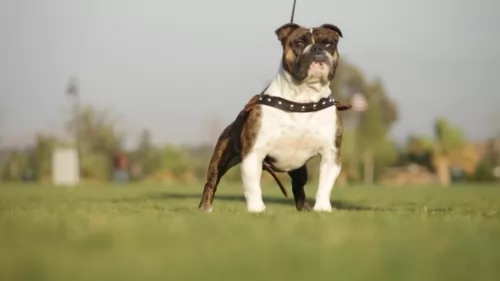 The origin of the Bantam Bulldog goes back to the 1800s, and in fact there is evidence of miniature bull dogs in 1899, In 1902 the smaller bulldog breed was facing extinction, so that it became necessary to import French bulldogs to England to help restore the bantam bulldog breed.
The origin of the Bantam Bulldog goes back to the 1800s, and in fact there is evidence of miniature bull dogs in 1899, In 1902 the smaller bulldog breed was facing extinction, so that it became necessary to import French bulldogs to England to help restore the bantam bulldog breed.
It was only in 2002 that the United Canine Association recognized the English bantam bulldog.
They’re the same as the ordinary bulldog except they are lighter and shorter, although there are slightly larger ones which are as tall as a regular bulldog.
The Bantam bulldogge is related to the English and French bulldogs so that the standards for the bantam breed has similarities to both types.
 The Dutch Shepherd is of Dutch origin, hailing from the Netherlands. They were originally used as herding dogs on the farms, where they became a jack-of-all-trades type of dog.
The Dutch Shepherd is of Dutch origin, hailing from the Netherlands. They were originally used as herding dogs on the farms, where they became a jack-of-all-trades type of dog.
The Dutch Shepherd in those days, 100 odd years ago, were also known as Hollandse Herders.
These dogs are more rare in modern days, but when you do find them, they are being used as police or security dogs, as guides for the blind, or simply as family friends.
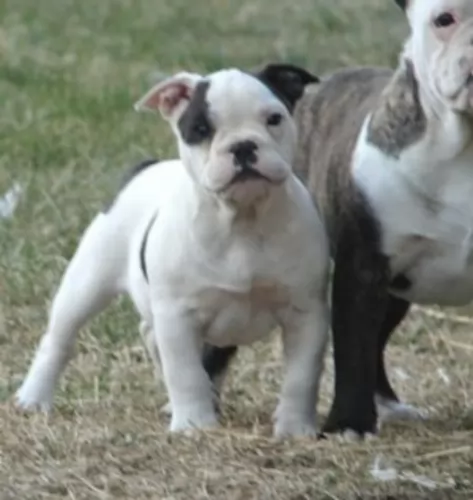 The breed has its origins with the English bulldog, but it was in 2011 that the ‘English’ was abandoned and the name of the dog changed to Bantam Bulldogge. Short to medium in height, and with his large, square head and broad, short muzzle, the dog is short, strong, stout and compact. He had wide apart eyes, short, half-pricked, half-floppy ears and the front legs are also strong and set wide apart.
The breed has its origins with the English bulldog, but it was in 2011 that the ‘English’ was abandoned and the name of the dog changed to Bantam Bulldogge. Short to medium in height, and with his large, square head and broad, short muzzle, the dog is short, strong, stout and compact. He had wide apart eyes, short, half-pricked, half-floppy ears and the front legs are also strong and set wide apart.
He is fit and active with a playful, jovial personality. The Bantam Bulldog is completely at ease with his human family and welcomes visitors to the home. He forms strong bonds with everyone in the family and loves the presence of children in the home too. As with most other dog breeds, he does well with training and socialization – it just makes him a better dog all round. He doesn’t have a problem with accepting other pets in the home.
The coat of the Bantam is short, dense and straight with the skin being tight to the body but looser around the head and neck. Both head and face have moderate wrinkles. The coat is available in all colors and is low maintenance. A good brush twice a week won’t only remove loose hairs and keep his short coat glossy, the mere act of brushing him strengthens the bond between you as well.
 The Dutch Shepherd dog is very similar in appearance to the popular German Shepherds, being a medium to large sized dog.
The Dutch Shepherd dog is very similar in appearance to the popular German Shepherds, being a medium to large sized dog.
The males are slightly heavier than females, but both males and females can stand between 55 and 62cm and weigh between 20 and 32kg.
There are actually 3 varieties found in the Dutch Shepherd dogs - short-haired, long-haired, and wiry or rough-haired. The dog has a double coat, consisting of a woolly undercoat and a top coat. The basic color of the coat is gold or silver through to red, giving rise to the brindle variations. Too much black or white seen in the fur is considered a fault.
In 1914 it was decided that brindle coats would distinguish them from the others.
The eyes of the Dutch Shepherd are dark, almond shaped and slightly slanting, while the medium sized ears are erect and high on the head and the thick tail is slightly curved. The dog has an unusually long tongue which is often found hanging out.
Early training and socializing for this dog is important so that he can learn to stay calm around new people, or visitors to the property.
The beautiful Dutch Shepherd doesn’t like being left alone for too long, loving rather to be involved with all that the family is involved in. They get on well with other pets in the home as well as being child-friendly.
They are happy dogs, who can also be smart and cunning, therefore highly trainable. They soak up new commands easily. Dutch Shepherds are also good watchdogs as they are fiercely loyal, and do not take kindly to strangers.
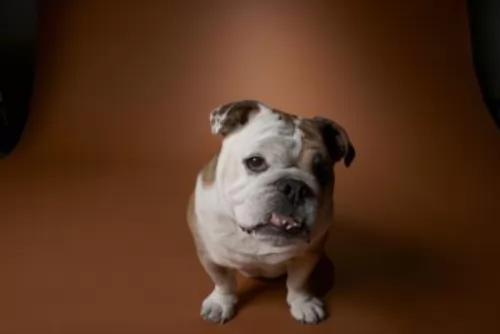 The Bantam Bulldog is full of personality and is active, friendly and social. He is an adaptable pet and will happily live with his human family in an apartment or in a home with a garden. Patient and tolerant, he responds well to the voice of his owner and simple commands are no problem with him as he is quick to learn and to please.
The Bantam Bulldog is full of personality and is active, friendly and social. He is an adaptable pet and will happily live with his human family in an apartment or in a home with a garden. Patient and tolerant, he responds well to the voice of his owner and simple commands are no problem with him as he is quick to learn and to please.
He is never going to be much of a guard dog for you, but he will be a happy, contented, loyal and devoted companion who just wants to be as close to you as he can.
 Your alert, intelligent and somewhat rare Dutch Shepherd is a loyal, protective dog, and while he can be aggressive around intruders and be a great guard dog, he can also be a gentle, loving animal around his human family members.
Your alert, intelligent and somewhat rare Dutch Shepherd is a loyal, protective dog, and while he can be aggressive around intruders and be a great guard dog, he can also be a gentle, loving animal around his human family members.
Though his tongue is long and often hangs out, you won’t have to contend with drooling. He is a wonderfully active dog and doesn’t easily gain weight. He isn’t a barker or howler, and his exceptional intelligence makes him highly trainable.
Whether there are children or other animals in the house, you can rely on your Dutch Shepherd to get on well with them, making him a wonderful family pet and canine friend.
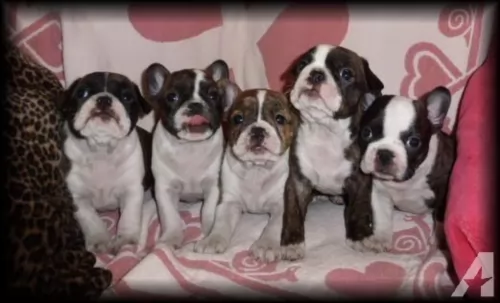 A happy dog is a healthy dog, but the happy Bantam Bulldog will be prone to certain ailments that are common to his breed
A happy dog is a healthy dog, but the happy Bantam Bulldog will be prone to certain ailments that are common to his breed
This breed of dog is prone to have hip dysplasia. Because of their genetic make-up, the soft tissues surrounding the joint develop abnormally and the disease can affect one- or both hips.
Bulldogs can also be prone to digestion issues which amounts to flatulence. This problem however, can be reduced significantly by giving your pet the best diet. Speak to your vet about appropriate foods for dogs with a sensitive stomach. With a sensitive stomach, you want to avoid dog foods with toxic colorants, artificial preservatives and artificial flavors.
Be aware of breathing problems with your bantam bulldog because flat-faced dog breeds such as this can battle with upper airway problems. Symptoms of an obstructed upper airway can include noisy breathing, panting, snoring, rapid breathing and coughing.
 The Dutch Shepherd dogs are the healthiest of the Shepherd breeds. They have relatively few health problems.
The Dutch Shepherd dogs are the healthiest of the Shepherd breeds. They have relatively few health problems.
However, like the German Shepherds they may develop hip dysplasia, but this is in fact fairly rare. Get your pet to the vet if you suspect this in your dog because it can lead to lameness.
In 2018 the University of Minnesota identified a disease in Dutch Shepherds called Miositis. This is an inflammatory myopathy causing painful inflammation of the skeletal muscle tissue.
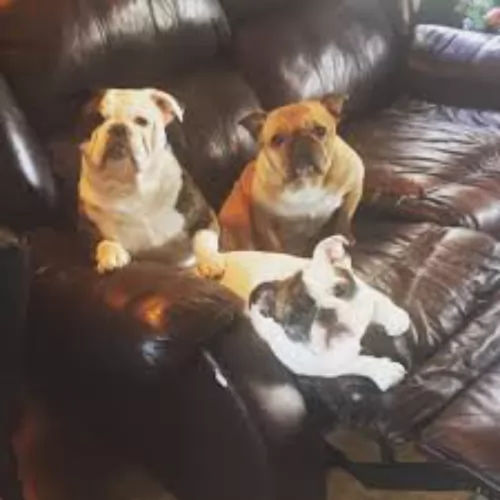 Your Bantam Bulldog needs a lot of protein in his diet. In fact, the Association of American Feed Control Officials have suggested that the dog needs at least 22% of maintenance protein for puppies and 18% of protein for adult dogs. Speak to your vet about wet- and dry dog foods and which foods will suit this particular pet of yours. Always ensure cool, fresh water is within your pet’s reach.
Your Bantam Bulldog needs a lot of protein in his diet. In fact, the Association of American Feed Control Officials have suggested that the dog needs at least 22% of maintenance protein for puppies and 18% of protein for adult dogs. Speak to your vet about wet- and dry dog foods and which foods will suit this particular pet of yours. Always ensure cool, fresh water is within your pet’s reach.
The exercise needs of the Bantam Bulldog are minimal. He is never going to turn down a game of ball with the kids but you don’t have to take him on long walks or runs. He is a social pet, so even though you don’t have to be putting him through an exercise program every day, he doesn’t want to be left alone hour after hour, day after day.
 Unfortunately Dutch Shepherds shed quite a bit of hair during their shedding period in spring and autumn. This makes regular brushing important during these seasons so as to remove the dead hairs, especially from the undercoat.
Unfortunately Dutch Shepherds shed quite a bit of hair during their shedding period in spring and autumn. This makes regular brushing important during these seasons so as to remove the dead hairs, especially from the undercoat.
The wire- or rough-haired variety shouldn’t be brushed but should rather be groomed by a professional groomer every 6 months or so.
Their nails need to be trimmed when necessary, to avoid cracking, splitting, or an injury.
Their ears can be cleaned weekly to get rid of any debris or wax build-up. This, if left, can lead to infection. Brush his teeth 2 or 3 times a week to avoid dental disease which brings on a host of illnesses.
These dogs do need regular exercising, and at the same time need to be physically and mentally stimulated. He is the kind of dog that has been used for herding purpose on the farm and he just craves activity. Take him with you on your walks and include him in ball games, hikes, jogging, swimming or when you go cycling – he is game for all kinds of activities.
The formula for their diet would be that of a medium to large dog with high energy levels. The top commercially manufactured foods have been developed to include all the important vitamins and minerals. Fish oil can also be added to their food to keep the coat shiny.
Add in cooked rice, cooked vegetables and chicken from time to time and be sure to add in some raw meat occasionally to prevent problems with the skin. Always ensure that your pet has fresh, cool water to drink.